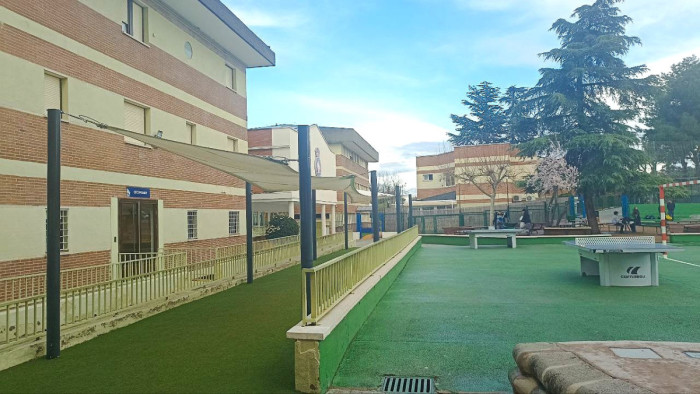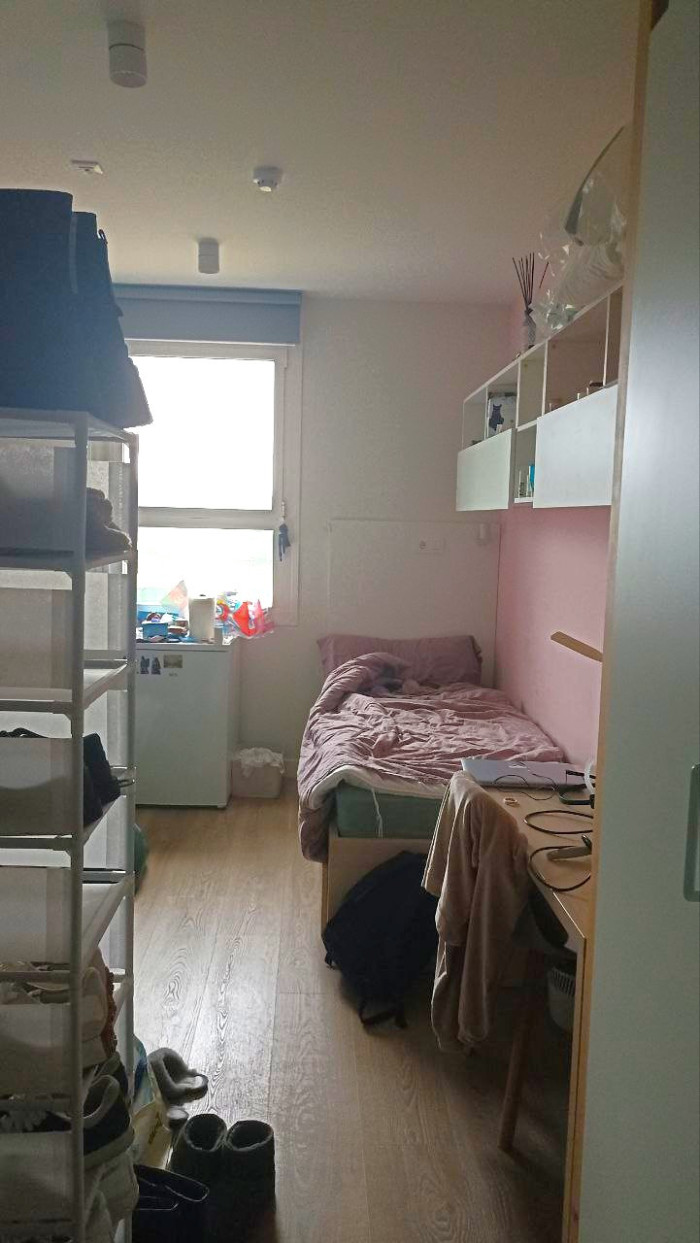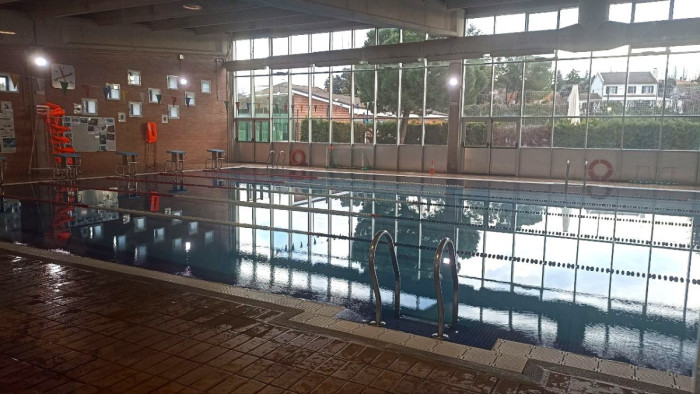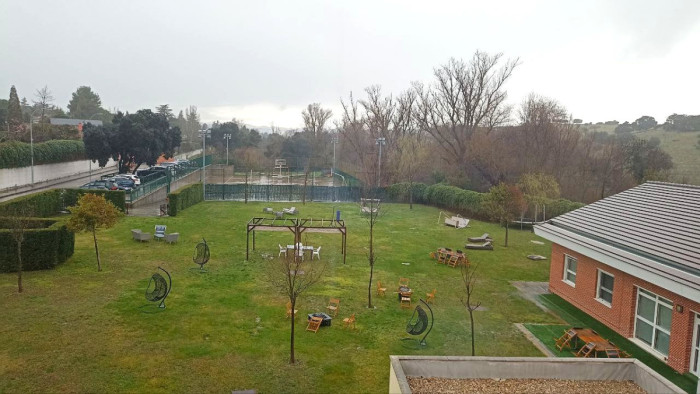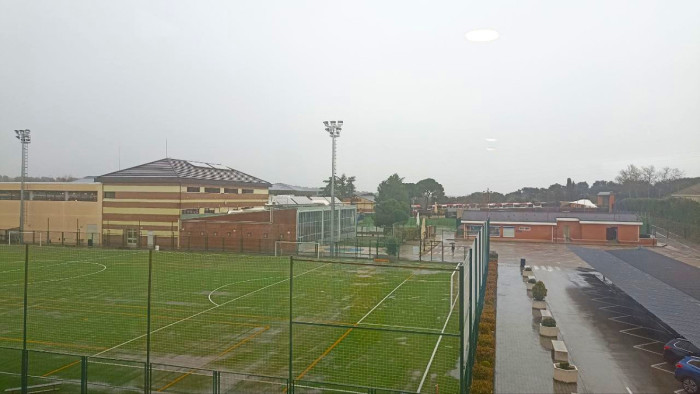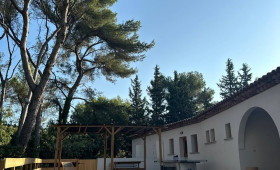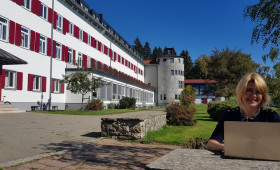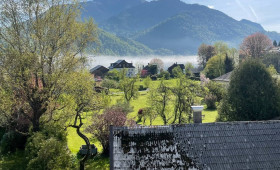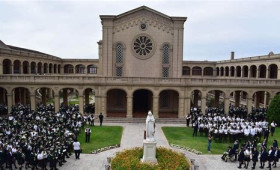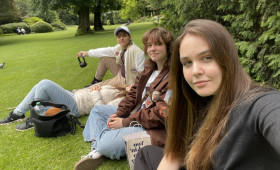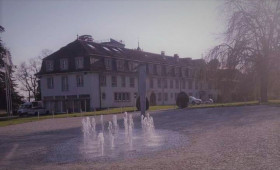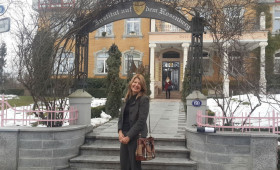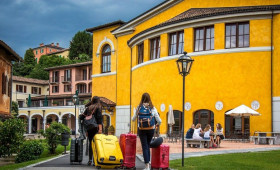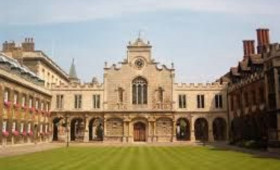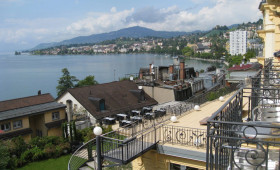Steps to a Dream: GCSE at King's College through the Experience of a Ukrainian Student
27.04.251977
For over a decade, we have been sending teenagers to Inspired schools, both for academic programs and for summer camps. We have also traveled and looked at many Inspired schools, especially in Spain, which has been in high demand in recent years. But until last year, I had not had a single student at the private school of this chain in Madrid, King's College Soto, even though our students often went there for summer camp.
Last autumn, we received an inquiry from King's College Soto for the GCSE program and successfully helped to place Victoria in the school. After studying for 2 terms, Victoria kindly agreed to talk about her experience.
- What prompted you to choose King's College, located in the picturesque Soto de Viñuelas near Madrid, to complete your GCSE?
Victoria: My choice of King's College Soto was largely determined by numerous and persistent recommendations concerning the GCSE program. As for Madrid, I was captivated by the very atmosphere of this Spanish city, its convenient location and, undoubtedly, the favorable climate, caressing with warmth for most of the year.
- How did the adaptation process go after moving to a new country and unfamiliar environment? Were there any moments that particularly surprised you?
Victoria: To my own surprise, the adaptation went surprisingly smoothly and quickly. Perhaps the most striking discovery for me was the incredible diversity of nationalities gathered under one roof. I had never been in such a cosmopolitan environment before, where people from all over the world, including even distant continents, study and communicate side by side.
- Did you feel a language barrier during your studies and everyday communication? How did you cope with this difficulty?
Victoria: Of course, the language barrier made itself felt both in the academic sphere and in interpersonal communication during the first couple of months. My level of English at that time left much to be desired. However, complete immersion in the English-speaking environment worked a real miracle: communication became much easier for me, and I also felt progress in understanding the educational material.
- What subjects did you choose to study as part of the GCSE program and what was the reason for this choice?
Victoria: For the GCSE program, I chose economics, media and geography. Economics and Media seemed like key subjects for my future university application, and were also the preferred subjects for the IB program, which I plan to study in the future. Geography attracted me with its apparent fascination. It turned out to be a subject that goes beyond the simple study of countries and their characteristics, delving into more global and topical issues, such as, for example, urbanization, which was the topic of our last module.
- How is the school day organized? How much homework is there?
Victoria: Our school day starts at 9:15 and ends at 16:35. During this time, we have two breaks. The first, lasting twenty minutes, follows the first two lessons, and the second, a longer lunch break, lasts a whole hour and comes after the next two lessons. As for homework, there is usually not much of it during the week, from Monday to Friday. However, the assignments we receive on Fridays may be somewhat larger and are designed to be completed over the weekend and early next week. But overall, I would characterize the amount of homework as moderate.
- Do the teachers provide support to students who are having difficulty with their subjects?
Victoria: The support from the teachers here is truly invaluable. They are extremely understanding when students have difficulty understanding the material and are ready to explain difficult points as many times as necessary. At the same time, if the initial explanation is insufficient, they patiently look for new formulations, trying to present the information in the simplest and most accessible language.
- Was there special support at the school for foreign students whose level of English was insufficient? How did your level of Spanish improve during your stay in Madrid, and thanks to what did this happen?
Victoria: I know that the school has a special support program for those foreign students whose level of English is at the beginning stage. This program, known as "induction English", is aimed at helping such students quickly learn English, establish communication with other students, start speaking, and better understand the subjects. In addition, the teachers themselves provide great support.
As for my Spanish, it has improved a little. I started learning it well in advance, at the beginning of June, so by the beginning of September I already had some basic knowledge. In the process of studying, I was able to strengthen this knowledge and significantly expand my vocabulary. Now I can confidently order in a restaurant or exchange a few phrases in a supermarket when I need something.
- Do you participate in any additional classes or clubs offered by the school?
Victoria: Yes, I attend the swimming section. All additional activities, especially sports, are held at school after the end of the main classes. I chose to swim twice a week - on Tuesdays and Thursdays. It is also worth mentioning the "boarders" - this is what they call students who choose to study at a boarding school. They have an additional opportunity to attend various events on Saturday or Sunday. And the "houseparents" are the teachers who take care of us. They have access to the keys to the swimming pool, the gym or the football pitch, and if we want to do something, they can easily arrange it.
- How do you spend your free time at school and outside of it?
Victoria: During breaks, I usually chat with my friends, we share impressions of the lessons that have just taken place, talk about our plans for the day or the upcoming weekend. Outside of school, I often join events organized for the boarding school students. I really enjoy these trips and activities. Sometimes my roommate and I leave school a little earlier and spend the whole day walking around Madrid, visiting various cultural places, or going shopping if we need to do some shopping that is difficult to do in the area around the school.
- What is the atmosphere like among students? Was it easy for you to make friends?
Victoria: The atmosphere among students is incredibly comfortable. I really like that all the guys are friendly and support each other. To be honest, it is very easy to make friends and find a common language here. This is especially easy to do during lunch breaks. I remember I was worried that I would not be able to make friends with anyone, but in fact everything turned out to be very easy: you just need to sit down next to someone and start a casual conversation. It's really great! Everyone is very open, especially when someone has a birthday. The cooks bring out a cake for the birthday boy, and everyone congratulates him together, singing "Happy Birthday".
- Do you think studying at King's College will be a good basis for your further education?
Victoria: I am convinced that studying at King's College will be of invaluable help to me in the future. Not only is this school considered one of the best for GCSE, IB and A-Level preparation, but I also really like their approach to teaching. There is an atmosphere of mutual understanding and support. If someone has difficulties, the teachers are always ready to help, and this, in my opinion, is just wonderful.
- Do you plan to continue studying at the same school on the A-Level or IB programs, or are you considering other options?
Victoria: To be honest, I am determined to choose the IB program and am not considering any alternative options. I want to study IB at this school, because many senior students studying on this program noted that it is at King's College that the IB is taught at an exceptionally high level. Here, complex concepts are explained in a more accessible language. For example, if the material in the textbooks is presented too complexly, the teachers do not hesitate to say: "Do not pay attention to this", and explain everything in their own words. I know that many teachers develop their own presentations for lessons, rather than relying solely on textbooks, since the information in them is often presented in a more difficult to understand form.
